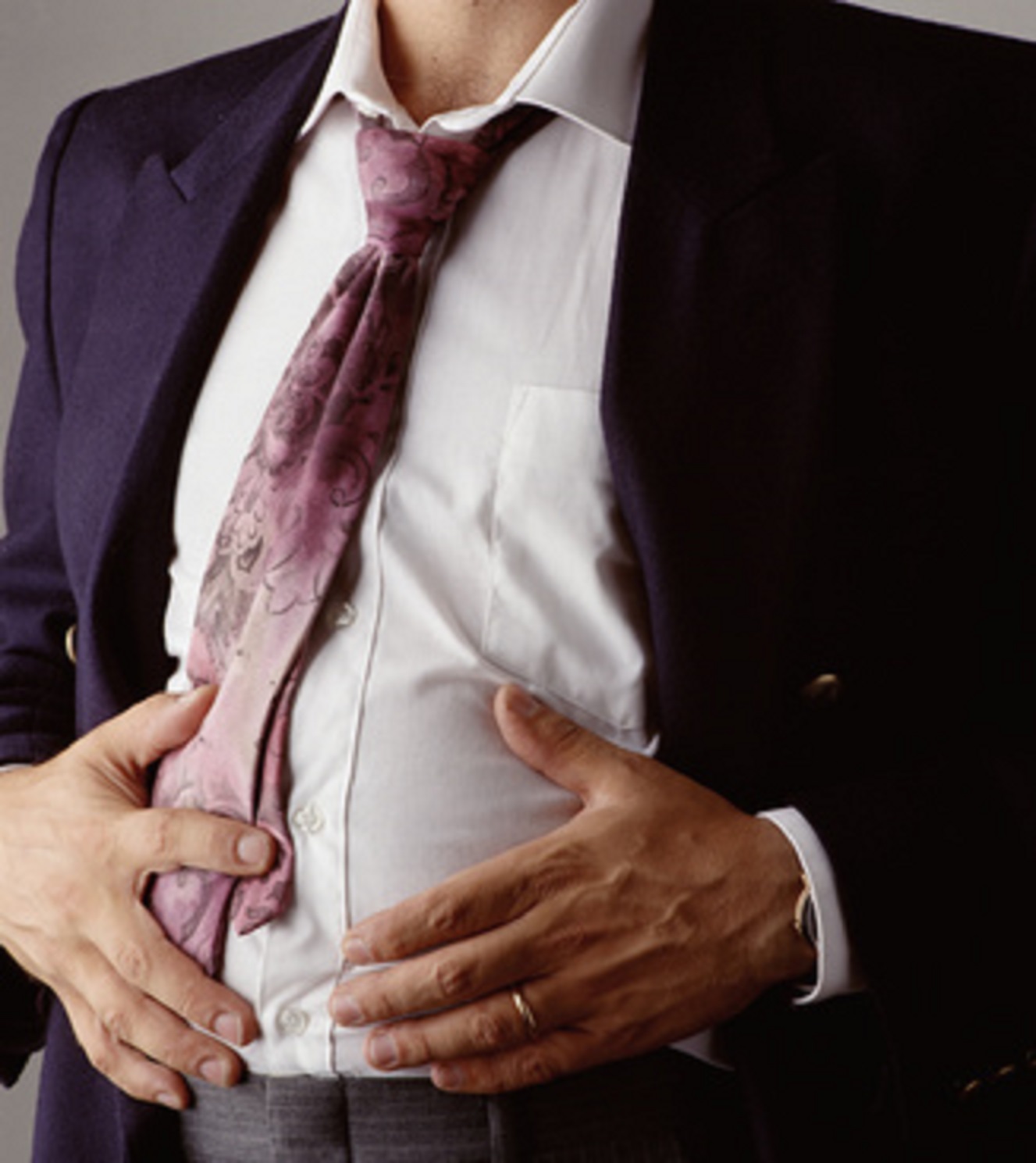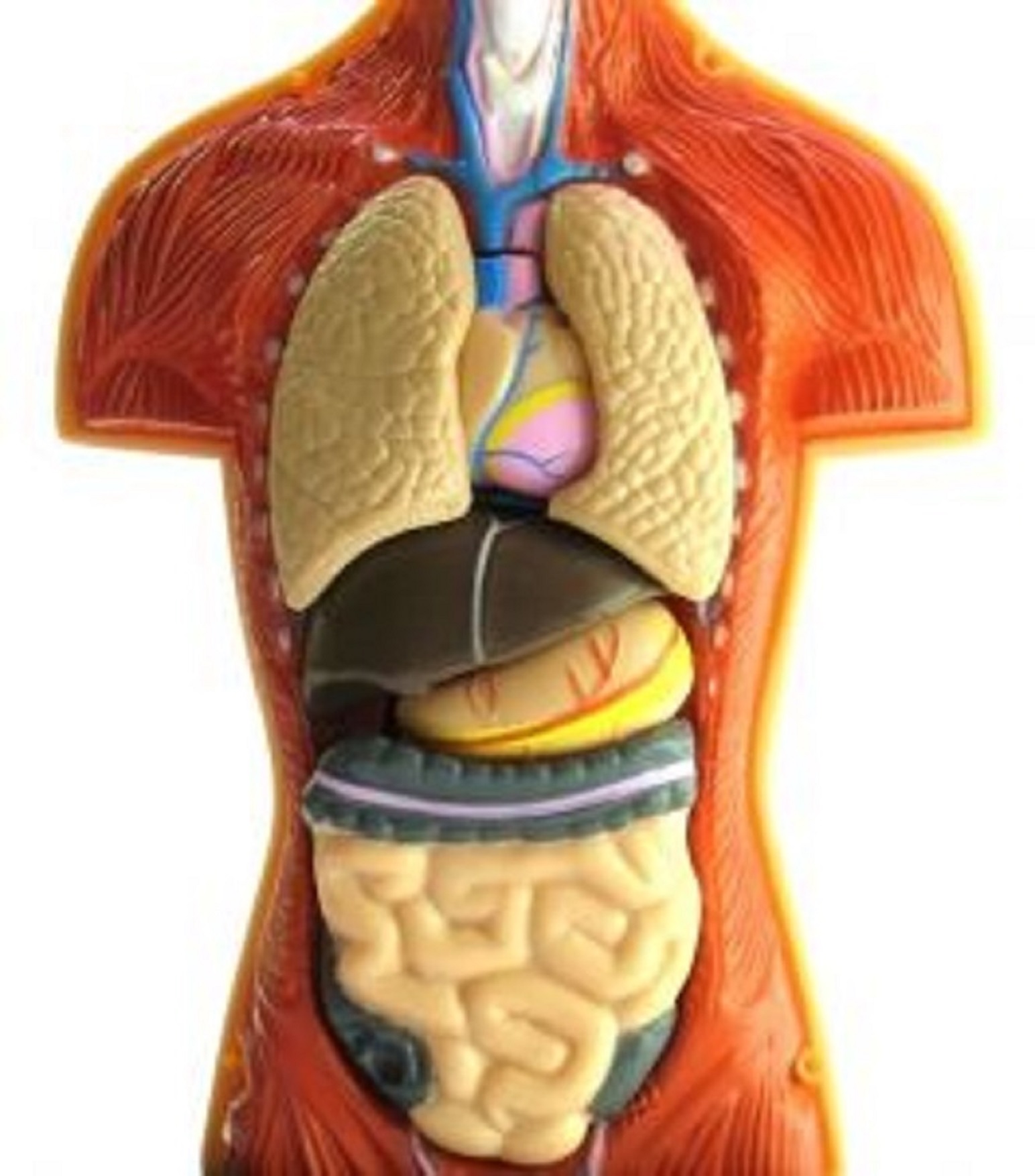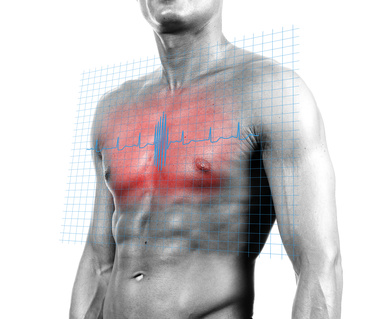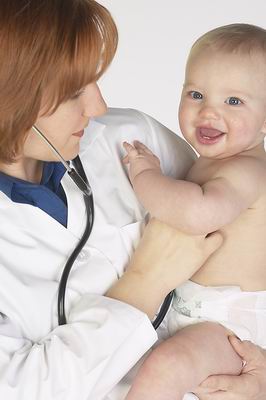What are Bowel Problems?

A health article about bowel problems fromYour Health Online the A to Z directory of dealing with Health Problems & nutritional Self Care Strategies
There are a wide variety of possible bowel problems that you can have with the digestive system. They may include a number of organs so sorting out what the symptoms are telling you can sometimes be difficult.
They can vary from a basic sluggishness, weakness or inability to digest and / or assimilate our food.
They may include symptoms like bloating, flatulence, frequent burping, discomfort after eating, pain in the abdominal area.
They may include difficulties or changes in your toilet habits and be due to intestinal parasites.
Conditional like Ulcers and gastritis require more details to diagnose and need more serious attention and ultimately the problems may come from stomach or bowel cancer.
This is a huge range of conditions that are all conditions of the digestive tract and mostly of the bowel.
What we have here is to give an overview of the various conditions that may be causing your particular symptoms and you can click into the specific conditions to check them in more detail.
Once you understand your condition then you can set about dealing with it.
Some respond to diet change, some need medical intervention to bring under control, many will respond extremely well the non medical supplements like Aloe Vera Juice and taking acidophilus supplements.
Check though here and we hope it will put you on the path to full heath again
Types of Bowel Problems
We’ve all had those irritating (and sometimes embarrassing) moments when we had to break away from a conversation, intimate moment, meeting or other social activity to run to the bathroom.
If it happens once in awhile, it may not be significant.
But, if digestive issues continuously embarrass you and make you frantically look for a way to leave a situation, it might have a negative impact on your life.
Digestive issues such as IBS (Irritable Bowel Syndrome), flatulence, acid reflux and gastritis can certainly wreck your social life and eventually drive you to stay alone as much as you can to avoid the embarrassment.
You should know that a continuous and irritating digestive problem might mean you have a serious health issue.
Whatever the issue, if it’s severe enough, then it should be addressed immediately by a healthcare provider before it becomes dangerous.
Digestive problems are part of the wide array of embarrassing health issues that we don’t want to talk about – but, it’s imperative that we do.
Some think these issues are simply a part of life, especially as we age.
Even though the symptoms don’t appear to be life-threatening, there may be issues occurring in your body stemming from a problem that could be simply cured or dealt with so it doesn’t get worse.
Common Digestive Problems and How to Deal With Them

Embarrassing digestive issues affect everyone sooner or later.
Diarrhea, gas, stomach pain or cramps, heartburn (GERD), Irritable Bowel Disorder (IBD) and Irritable Bowel Syndrome (IBS) are all digestive / bowel issues which could cause embarrassment.
Treatment for these nasty problems might include lifestyle changes or medication.
Even if pondering gas or diarrhea isn’t the most exciting thing to think about, you should know about them and what you can do to relieve the situations.
For example, you should know that IBD is different from IBS.
IBD is defined as a structural disease, which means the symptoms are caused by some type of physical damage.
Ulcers, Crohn’s disease and ulcerative colitis are all considered to be inflammatory bowel diseases.
IBS is considered to be a functional disease – meaning symptoms are experienced but no physical problem is found.
Both IBD and IBS cause constipation, bloating, diarrhea and stomach pain which can be both embarrassing and present a real problem if you enjoy an active lifestyle.
Symptoms of both IBS and IBD might include blood in the stool, fever, worsening issues, inflammation – especially in the joints, eyes or skin – and weight loss.
Treatment for both might include controlling the inflammation with immunosuppressive drugs or, in some cases, surgery.
Heartburn (GERD) is painful and may be difficult to deal with.
With acid reflux, the stomach acid flows into the esophagus (the tube connecting the throat and stomach) and heartburn is a symptom of GERD.
You may be able to use over-the-counter medications for an occasional bout with heartburn and some modifications in your lifestyle might be in order.
For example, avoid certain foods such as chocolate, citrus, garlic, onion and spicy foods just before bedtime.
Try eating smaller meals throughout the day. If you smoke – quit. If you’re overweight or obese try to lose the weight with dietary changes and exercise.
You can also try placing blocks under the head of the bed to raise it a few inches while you sleep.
If antacids or acid-blocking medications and changing your lifestyle habits don’t work, you should be tested to see if you have a problem that would warrant another type of medication or surgery in extreme cases.
Gas, belching and bloating are all uncomfortable conditions and very embarrassing when you’re around people.
Most of the time, all three conditions are caused by swallowing air or the way your food breaks down during the digestive process.
Some people have occasional bouts with these digestive issues, while others may suffer from them repeatedly on a daily basis. With these three issues, one thing leads to another.
For example, when built-up gas isn’t passed out of the system by flatulence or belching, it will likely gather in the stomach or intestines and cause bloating. This condition can cause stomach pain.
Having a bowel movement or passing gas may help to relieve any of these situations.
Some ways you can relieve the problems of gas, belching and bloating include avoiding eating fatty foods on an empty stomach, stress and anxiety, smoking, drinking carbonated beverages or eating gassy foods such as beans, cabbage and onions.
Your situation may also be caused by a disease, blockage or infection of the gastrointestinal tract, IBS or other problems in the intestinal tract.
If changes in your lifestyle and medications don’t help your situation, see a doctor for a complete checkup.
Frequent stomach pain and cramps are red flags that signal you should see a doctor.
You might be suffering from IBD, IBS or a structural disease.
Your doctor will likely run a series of tests to help diagnose the issue and determine which treatment to use.
Less Common Digestive Issues That Can Make You Miserable

There are numerous digestive issues that go beyond the norm of common digestive or bowel problems and need further diagnosis to define the real issue.
For example, peptic ulcers can cause horrid stomach pain which is further exacerbated by painkillers you might take to alleviate the misery.
Over 25 million Americans will suffer from peptic ulcers at some point in their lives.
Smoking may cause the problem – or alcohol and stress may also contribute to the disease or at least exacerbate it or delay the healing process.
Peptic ulcers may be treated with antibiotics and perhaps combined with acid reducing medications.
Perforated ulcers may need laparoscopic repair surgery to completely eradicate the problem.
Diverticulitis is more common in those Americans older than age 70, but only about 20% of those with the disease will experience severe complications.
Diverticulitis occurs when a diverticula (abnormal bulge) protrudes from the intestinal wall.
The bulge may cause a tear or become inflamed and cause severe pain.
One way to avoid diverticulitis is to eat lots of popcorn and nuts.
If you have an extreme case of diverticulitis, your symptoms may include vomiting, fever and tenderness in the abdomen requiring surgery.
Gallstones are almost certain to require treatment. They’re made up of little stone-like substances largely made from bile salts and cholesterol.
The best treatment is to remove the gallbladder by surgery – which is one of the most common procedures in medicine.
Sometimes the stones inside the gallbladder become stuck in the ducts between the small intestine and the liver.
When this happens, the flow of bile is blocked and inflammation or infection of the gallbladder may occur.
Gallstones are said to occur because of a lack of fiber and too much fat in your diet.
Gaining and losing weight may also set the gallbladder up for gallstones.
Removal of the gallbladder can be done in several ways, including laparoscopic surgery or surgery through the vagina or mouth.
Lactose intolerance is also become a problem among Americans.
Those who suffer from the condition likely lack an enzyme needed for digestion of the sugar found in milk.
Symptoms include bloating, gas, nausea, cramping and diarrhea.
A breath test can usually detect lactose intolerance and the high levels of hydrogen associated with the condition.
A blood test may also indicate the problem by showing how the blood reacts to the patient drinking a beverage high in lactose such as milk.
If lactose intolerance is detected, over-the-counter pills can help by replacing the enzyme (lactase) and by only ingesting lactose-free milk.
It’s usually not necessary to avoid all dairy products.
Medical Tests for Digestive Disorders

If medication and lifestyle changes aren’t helping your digestive issues, a doctor can order some tests that will diagnose the ailment and put you on the track for recovery and relief.
A clinical examination is first on the list of tests and may help the doctor diagnose such disorders a constipation, extreme acidity and diarrhea problems.
A blood test may be in order to see how your liver is functioning, monitor your blood count, pancreatic enzyme test and lactose tolerance testing.
Your doctor may also order a stool analysis to assess the functionality of your GI tract.
The test profile may be used to diagnose such conditions as constipation, diarrhea, IBS, indigestion, malabsorption and infection.
If the test reveals higher than normal levels of fat in the stool, it may be a sign of pancreatitis or celiac disease.
If there’s a high pH level, it could be an indication of cancer or some type of inflammation.
An endoscopy is in order if you’ve suffered from long bouts of acidity or heartburn, sudden or unexplained weight loss or changes in your bowel habits.
An endoscopy is non-surgical, but lets the doctor thoroughly examine the stomach or digestive tract for abnormalities.
During the procedure, the doctor may gather small samples of tissue for biopsy.
This test will help them detect polyps or cancer cells which may be causing a digestive issue.
An endoscopy ultrasound test is sometimes utilized to help diagnose problems in the upper intestine.
A renal function test may be done using gadolinium with contrast agents that are commonly used in CT scans and MRIs.
If you’re experiencing failing kidneys, the kidney function testing may be done before the CT scan or MRI of the renal area.
A device called a manometer is used to measure movement and muscle pressure in the GI tract and oesophagal.
Anorectal manometry is used to measure how the anal sphincter muscle contracts.
Barium X-rays are used to help the healthcare provider view the stomach and small intestines. It’s usually given through the rectum in an enema.
This test can help diagnose gastrointestinal problems such as ulcerations, narrowing of the gut and fistulae problems.
A breath test may be used to diagnose such conditions as lactose intolerance.
If sugars in your diet aren’t completely absorbed by the small intestine, the bacteria in the colon may produce hydrogen gas.
If you’re lactose intolerant, the breath levels of hydrogen will be extreme.
You may also be experiencing a high growth of bacteria in the small intestine, which then may be absorbed into the blood and transferred to the lungs.
Abdominal ultrasound, MRI and CT scans are sometimes used to examine the blood vessels in the organs, liver, pancreas and gall bladder.
These high-frequency sound waves let the physician view real time images of the internal organs, blood vessels and surrounding tissue.
Monitoring the pH level may be in order to diagnose such digestive problems as GERD.
You’ll be measuring the amount of stomach acid within the esophagus within a 24 hour period and can also test the effectiveness of medications you may be taking.
The pH test involves passing a sensor on a thin tube through the nose and placing it just above the esophageal sphincter.
This will detect the amount of acid that enters the esophagus during the time period.
A diseased liver may cause digestive problems that should be addressed immediately.
A test called transient elastography is non-invasive and can let the physician record the elasticity of the liver and test liver fibrosis.
The test involves inserting a small transducer probe into the liver which delivers a 50-MHz wave.
The velocity of the wave is measured and the measurements are then used to diagnose the liver’s stiffness.
The more information you have about digestive issues the better able you are to discern if you have one – or to take measures to prevent a problem in the future.
There is a ton of information you can gather from medical websites.
You don’t have to suffer from one or more of these digestive issues in silence.
Americans, especially, are experiencing growing digestive problems and even becoming a growing burden by the number of clinic visits and hospitalizations necessary for treatment.
There are also growing organizations which address problems such as Crohn’s disease and ulcerative colitis which are the most common of the inflammatory bowel diseases.
The Crohn’s & Colitis Foundation of America can offer a wealth of information about gastrointestinal disorders.
Don’t let digestive issues and disorders wreak your life. Get out there and discuss it with others to find help and relief.
Below are links to the free health online Bowel & Digestive Health Guide pages on the subject you are looking for:
Bowel Cancer
Bowel cancer (also known as Colorectal cancer) is a collective term to describe the development of cancer cells within various areas of the bowel (appendix, intestine, colon or rectum).
If not treated it can spread from the affected area to other parts of the body.
Link Bowel Cancer
Celiac Disease

Celiacs disease is a digestive disease that damages the small intestine and interferes with absorption of nutrients from food.
People who have celiac disease cannot tolerate a protein called gluten, found in wheat, rye, and barley.
Gluten is found mainly in foods but may also be found in products we use every day, such as stamp and envelope adhesive, medicines, and vitamins.
In Celiac Disease gluten from diet causes an immune reaction in the small intestine that actually attacks the lining of the intestine causing tissue damage, bloating, flatulence, abdominal cramping and diarrhea.
The condition results in damage to the villi on the surface of the small intestine and an inability to absorb certain nutrients from food.
Link Celiac Disease
Colitis
Colitis, like Crohn's disease, is an inflammation of the digestive tract, specifically the lining of the large bowel.
Both the rectum and colon can be affected.
When the rectum is affected in isolation, the condition is called ulcerative proctitis.
When the colon is affected the condition is called pan-colitis.
Link Colitis
Constipation
Constipation (having trouble defaecating) simply means less frequent bowel actions.
Your motion or faeces (pronounced fee-sees) becomes hard and dry, and you can only pass small pieces with much trouble.
You may also have stomach pains, swelling, pain when straining and a feeling of having not quite emptied the bowel.
Link Constipation
Crohn's Disease
Crohn's disease is a condition where any part of the digestive tract (from the mouth to the anus) becomes inflamed.
Crohn's disease is believed to be an auto-immune disease, in which the immune system attacks the lining of the affected area.
The most common areas of the digestive tract affected by Crohn's disease are the lower parts of the small bowel and the large bowel.
Link Crohn's disease

Diarrhoea
Diarrhoea is a condition in which a person has frequent watery, loose bowel movements.
This condition can occur as a symptom, disease, allergy, food intolerance or foodborne illness and may be accompanied by abdominal pain, nausea and vomiting.
Diarrhoea is most commonly caused by viral infections or bacterial toxins.
There are other conditions which involve some but not all of the symptoms of diarrhoea, so you should check with your doctor if it persists.
A healthy person will normally recover in a few days, but for many people, and especially infants and children, it can lead to severe dehydration and can become life-threatening without treatment.
Link Diarrhoea
Diverticulosis and Diverticulitis
Diverticulosis is a term to describe the formation of pockets (diverticuli) in the wall of the large intestine.
The formation of these pockets is due to an increase in pressure brought upon by a person straining whilst moving their bowel.
The result of the diverticuli can lead to a build up of mucus which leads to infection, known as diverticulitis.
Link Diverticulosis and diverticulitis
Flatulence & Gas
Although flatulence and gas is a common occurrence and anyone can suffer from it, it can reach the point where it becomes a noticeable problem for you - especially when it’s happening often.
There are numerous reasons why flatulence develops.
It’s caused by gas within your digestive system.
This gas has to escape so that the pressure inside your body is relieved.
Link Flatulence & Gas
Gallstones
Gallstones are solid deposits of cholesterol or calcium salts that form in your gallbladder or nearby bile ducts.
They often cause no symptoms and require no treatment.
But some people with gallstones have a gallbladder attack that can cause symptoms, such as nausea and an intense, steady ache in their upper middle or upper right abdomen.
In some cases, the pain can be severe and intermittent.
Link Gallstones
Heartburn (Acid Reflux)

The disease causes damage to the esophagus as the acidic contents from the stomach, containing acids and pepsin, pushes back to the esophagus since the sphincter becomes weak and can no-more prevent the contents from stomach from gushing back in esophagus.
The acidic contents burn the esophagus and causes irritation in the esophagus.
Link Heartburn (Acid Reflux)
Hemorrhoids
Haemorrhoids are the inflammation and protrusion of the veins around the rectal canal.
Haemorrhoids are cause by the weakening of the connective tissue within the rectal area.
This causes the veins to swell and may eventually lead to prolapse.
Symptoms of haemorrhoids include bleeding from the anal area, discomfort and pain and itching around the area.
Link Hemorrhoids
Infant Bowel Problems

Disorder of the stomach and bowels is one of the most fruitful sources of the diseases of infancy and infant bowel problems.
Only prevent their derangement, and, all things being equal, the infant will be healthy and flourish, and need not the aid of physic or physicians.
There are many causes of infant bowel problems which may give rise to these affections; many of them appertain to the mother's system, some to that of the infant.
All are capable, to a great extent, of being prevented or remedied.
It is, therefore, most important that a mother should not be ignorant or misinformed upon this subject.
It is the prevention of these affections, however, that will be principally dwelt upon here; for let the mother ever bear in mind, and act upon the principle, that the prevention of infant bowel problems and disease belongs to her alone; the cure to the physician.
For the sake of clearness and reference, these disorders will be spoken of as they occur:
LINK: Infant bowel problems
Irritable Bowel Syndrome
Irritable Bowel Syndrome (IBS) is a condition where a person experiences extreme bowel habits (either constipation, diarrhoea or both).
Note that IBS is not related to Irritable Bowel Disease (IBD) which is a separate and more serious disease.
In addition to constipation and diarrhoea, other symptoms for suffers of IBS include abdominal pain and bloating.
People who have contracted other illnesses (such as a fever, vomiting and acute diarrhoea) may be susceptible to contracting IBS. Diet and stress may also trigger IBS in some patients.
Link Irritable Bowel Syndrome
Rectal Prolapse
Your rectum is the last 12-15 centimetres of your large bowel. Located just above your anal canal (back passage), your rectum is held in place by muscles and ligaments.
Things like age, long-term constipation or childbirth can cause weakening of these ligaments and muscles.
Link Rectal prolapse
Rectocele
Rectocele is a condition where a female's rectum (or rectal septum) protrudes into the back wall of the vagina.
This produces an abnormal bulge within the vagina.
In extreme cases the bulge can fall through the mouth of the vagina or cause faecal incontinence.
Link Rectocele
Ulcers - Stomach (Peptic Ulcers)
Literally speaking, an ulcer is an open sore, often infected.
Frequently this sore is in the stomach or the duodenum, (the first part of the intestine leading from the stomach) the part of the intestines which connects with the stomach.
Peptic ulcers, which are in the stomach and the duodenum can occur at any age and affect both men and women.
Untreated, sufferers can look forward to a long siege with them.
Link Peptic Ulcer

Urinary Tract Infection
Urinary Tract Infection (UTI) is an encroachment by the bacteria of the urinary tract which includes kidney, ureters, bladder or urethra.
This bacterium enters the opening of the urethra and procreates in the urinary tract causing urinary tract infection.
Link Urinary Tract Infection
Worms
Worms is a collective term for a range of parasites that affect the digestive tract and that may lead to bowel problems.
Contamination is caused as a result of eating worm eggs.
The eggs travel through the
digestive system to the intestines where they hatch into worms.
Link Worms

Vitamin & Nutrient Associations
‘HERBALIFE SUGGESTIONS’ Tell about experiences or STUDIES you have read, using medication and/or nutrition and what products you would recommend for THIS problem & give example story here, ANECDOTAL, or whatever, to provide some evidence of products working
The most powerful natural product available from many bowel problems is Aloe Vera Juice.
Further reading through our articles on health issues will give you a body of information that will help you decide what options you have to deal with the underlying causes of your bowel problems problem through giving your body the nutrition products that will assist you body to heal from the inside out.
• acid reflux
• acid reflux tips
• nutrition
We wish you well in your search for solutions to this problem and your movement towards better health in all areas.
More Resources available about bowel problems :
Below here are examples of Health Success Results other people have had with using a self care strategy for dealing with bowel problems:
Share *YOUR* remedy & health success story!We are on a world-wide mission to source and tell our readers about as many as possible of the natural remedies & self care strategies available, so please help us to grow and improve our health information on this subject. See below here what stories & resources have been contributed on this subject:Click below to see contributions from other visitors to this page...
Hyperbiotics Pro-15
Discover the Importance of a Healthy Gut
3 Foods to Avoid if You Have Digestive Problems
5 Simple Tricks to Help You Drink More Water Every Day
Get Rid Of Mucoid Plaque With Ejuva Cleanse
Colon Health | Your Health Online
Apples: To a Healthier You
Your Health Online | Connecting liver disease and Gilbert's disease
Your Health Online Liver | The relationship of Gilbert's disease and jaundice
Your Health Online Liver | What sets Gilbert's disease apart from jaundice
HERNIA
understanding food poisoning
Colon Cleanses to Lose Weight: Do They Really Work?
Keeping Your Colon Healthy!
The Poop On Colonics
|
Subscribe to “Your Health Success” free newsletter
BACK TO “Your Health Online”
the A to Z directory of dealing with Health Problems & Self Care Strategies for natural remedies to your health issues.
*** GENERAL RELEASE AND ASSIGNMENT
For good and valuable consideration, the receipt and legal sufficiency of which is hereby acknowledged, I ("I", "me", "my") hereby agree as follows:
1) I hereby grant to Warren Tattersall, his successors, assignees and licensees the unlimited right, but not the
obligation, to use any statements made by or attributed to me (my "Statements") as well as my name, voice, and likeness, performance, personal characteristics and other identifying information (jointly and severally with the Statements and the photographs referenced in Paragraph 2 below, my "Personal Characteristics") in and in connection with the advertising, promotion, marketing and other exploitation of Herbalife products or Warren Tattersall’s services in any and all languages and media, now known or hereafter devised, throughout the universe in perpetuity.
2) If I supply Warren Tattersall with photographs of myself on this date or any date subsequent, I agree that Warren Tattersall may use such photographs to the full extent provided above, I warrant and represent that I am the person depicted in the photograph, I am the owner of the photograph, I have the authority to grant the permission and rights granted herein, and no one else’s permission is required to grant such rights, and I understand that the copy of the photograph(s) I supply to Warren Tattersall will not be returned.
3) I understand that Warren Tattersall is not obligated to use my Personal Characteristics as permitted herein or, if commenced, to continue with such use in any territory. I acknowledge and agree that Warren Tattersall may make my Personal Characteristics available to Warren Tattersall’s independent distributors to use as permitted above.
4) In undertaking the act of submitting my words and images through www.TheHealthSuccessSite.com I understand that I am agreeing the terms and conditions of this agreement
I have read this entire General Release and Assignment and fully understand his contents. I likewise understand that this document shall remain in full force and effect unless/until I request that it be terminated, and that any such request must be made in a signed writing. By signing below, I hereby acknowledge and agree to the
foregoing.
I understand that in submitting my material for publication I am granting the rights to reproduce this material on the internet or in other form and I have read the conditions above
============================================================
SITE DISCLAIMER: Do these products “cure” anything? Of course not… but it stands to reason that if you cleanse your body and feed it the finest nutrition available, giving it everything it needs in balance, on a daily basis, that your body will do what nature intended, and give you the best possible chance to fend off sickness and disease. This bowel problems information is not presented by a medical practitioner and is for educational and informational purposes only. The content is not intended to be a substitute for professional medical advice, diagnosis, or treatment. Always seek the advice of your physician or other qualified health provider with any bowel problems questions you may have regarding a medical condition. Never disregard professional medical advice or delay in seeking it because of something you have read.
The bowel problems resources on this site are not intended to be a substitute for professional advice. While all attempts have been made to verify information provided in this publication, neither the author nor the publisher assumes any responsibility for errors, omissions or contrary interpretation of the web site bowel problems subject matter herein. The site bowel problems contents are solely the opinion of the authors and should not be considered as a form of advice, direction and/or recommendation of any kind. If expert advice or counseling is needed, services of a competent professional should be sought. The author and the Publisher assume no responsibility or liability and specifically disclaim any warranty, express or implied for any products or services mentioned, or any techniques or bowel problems practices described.
The purchaser or reader of this publication assumes responsibility for the use of these bowel problems materials and information. Neither the author nor the Publisher assumes any responsibility or liability whatsoever on the behalf of any purchaser or reader of these bowel problems materials. There is no guarantee of validity of accuracy. Any perceived slight of specific people or organizations is unintentional. This website and its creators are not responsible for the content of any sites linked to. Since natural and/or dietary supplements are not FDA approved they must be accompanied by a two-part disclaimer on the product label: that the statement has not been evaluated by FDA and that the product is not intended to "diagnose, treat, cure or prevent any disease."
===========================================================
Back to Top of your health online bowel problems page
Subscribe to “Your Health Success” newsletter
Terms of Use
|
Privacy Policy
|
Disclaimer
|
